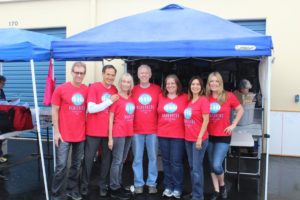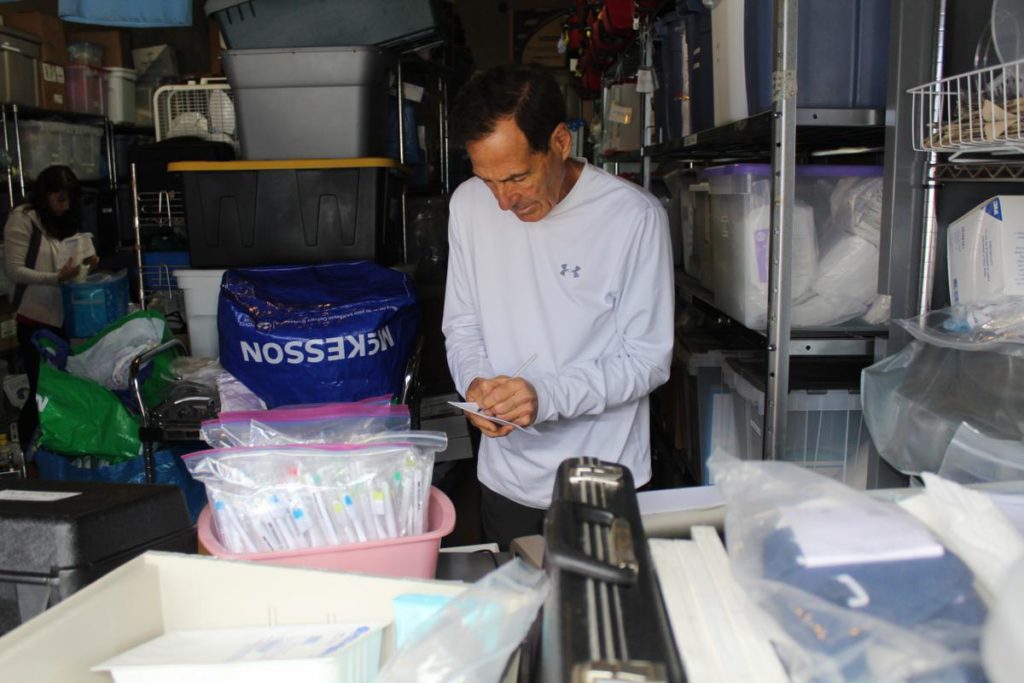 I thought it helpful to list a few things that came to mind to help protect and prevent you from being a victim of this pandemic. This will be a challenge as it is expected to infect 40-70% of our population. I am sure you also have other suggestions I missed. Please share them. These suggestions are ones I am adopting and/or recommending to patients, my staff, family members and friends. Based on emerging data, they may need to be changed but most are common sense suggestions based on my personal knowledge base. They apply to healthy households where no one is ill. See below links for other related issues and advice. The CDC, WHO, and others are great websites for detailed information and recommendations.
I thought it helpful to list a few things that came to mind to help protect and prevent you from being a victim of this pandemic. This will be a challenge as it is expected to infect 40-70% of our population. I am sure you also have other suggestions I missed. Please share them. These suggestions are ones I am adopting and/or recommending to patients, my staff, family members and friends. Based on emerging data, they may need to be changed but most are common sense suggestions based on my personal knowledge base. They apply to healthy households where no one is ill. See below links for other related issues and advice. The CDC, WHO, and others are great websites for detailed information and recommendations.
Stay home as much as possible unless exercising, or activities away from others. Simply put stay away from other people. If a family unit, keep it that way; “alone together”. Clean surfaces with soap and water, then with usual cleaning sprays as needed especially if anyone has symptoms. Include high touch surfaces are just about everywhere especially kitchen, bathroom, door handles, phones, shared keyboards, etc. When outside stay 6 ft or more away from others. If you develop symptoms wear a mask if you have one, isolate yourself and use extra precautions (see CDC link below). Stay away from those at the highest risk to protect them.
Plan ahead: For those with increased risk factors (and others) consider ordering most items you will need including food on line. Many items will be on backorder, but in many cases, you can order now even though it will be delivered days or weeks from now. Stay ahead of your needs by ordering at regular intervals.
If you live alone or are the only adult in your home – figure out what you will do if you are ill. Find a COVID-buddy to share this burden. Do not wait until you fall ill. Remember most likely at least 50% of the population will be affected with COVID-19
Keep Strict procedure to keep your household safe: Hand Sanitizer in cars and immediately inside by the entrance doors. AS soon as you enter disinfect your hands. Hand washing probably more effective than sanitizer. All items in a sealed bag dip can be dipped in highly diluted but effective bleach solution (1/3 cup or 5 Tablespoons per one gallon of water or 4 teaspoons or 20 cc per quart. Betadine, Iodine, solution can be used but just soap and water should be effective. Clean flat working surfaces often. An alternative is washing the surface with soap and water or a disinfectant wipe. Wash hands after, before/after meals, touching pets, touching nose, mouth especially after sneezing/coughing.
Obtain extended supplies – enough for a few weeks if possible. Buy more food and essentials for daily living than usually needed without hoarding, much can be stored in the freezer for later use to minimize the number of trips outside the home. Use Amazon or other home delivery services – though they may be “currently out of stock”, they usually give you an estimate of when it will be available – e.g. a week from now. Order in advance at regular intervals. Wash all packaging that comes into your home or wipe off as needed. Note that freezing will NOT kill COVID 19, just the opposite, it may allow it to be infective for far longer periods. On the other hand, cooking will. I prefer frozen veggies preferred over fresh during this time, as fewer hands have probably touched it. Frozen vegetables are usually frozen immediately after picking so always fresh and can be stored so you do not have eat it immediately or leave the house often. For those unable to wash your fruits and vegetables easily, I would limit eating salads and other non-peeled, fruit. Wash everything thoroughly, and/or consider other methods (see CDC references) and consider discarding outer most leaves. I am personally favoring cooked veggies instead. Perfect time to stock up on dried beans and grains – crockpot, Instapot or pressure cooker makes this no longer a time-intensive activity. Note, food appears not to be a major vector for COVID thus far.
Young people are not immune: The notion that young people are immune is a myth: and yes, young adults can become very ill. In the USA 20% of hospitalizations of first 4000 confirmed cases of Covid-19 were among those in the 20–40 year age group. For needed road trips and business trips: Try not stop for fast food as it increases the chance of interacting with others, is handled by at least 2 others, etc – bring food with you if feasible. Do NOT shake hands, keep a safe social distance. If you are bringing fast food home, consider microwaving it before consuming.
Stay Healthy: Exercise daily using social distancing, sleep adequately (something I hope to be able finally do ), Vitamin C, and D, home projects, etc.. Do fun things, read a book, catch up on Netflix, and your TO DO list, connect with friends by phone, text, conference calls and social media. Call someone who is isolated and let them know you were thinking about them.
Stay safe, stay healthy. Our family, friends, the world…. are being threatened. Do not take this lightly.

Mission Plasticos is helping
On a separate note I wanted to let you know what Mission Plasticos is doing: We are mobilizing potentially needed and potentially lifesaving medical items in our Plasticos warehouse to be able to donate as needed in for community emergency needs which are expected in the days to come. e.g. we have 2 anesthesia machines, suction machines, OR equipment, surgical tools, disposables and PPE’s, etc. For more information see: www.missionplasticos.org
How you can help: Hospitals need help and will shortly have a critical need for additional doctors, nurses, medical assistants, surgical techs and non-medical support. For those without increased risk factors (e.g. under 60 years of age without co-morbid conditions) weigh the dangers vs benefits and consider contacting hospitals and urgent care centers for short time hire or volunteer work. Volunteer individually for a neighbor, friend, or with an organization that takes care of the elderly, those with disabilities, socially isolated – to assist with living essentials like food shopping, picking up meds, etc.
Blood will be critically needed by hospitals. Consider donating blood if you are healthy without risk factors for donors or recipients. This also applies to those that, are fully recovered from COVID-19 and given permission from your physician (your serum may be even more helpful to those critically ill). Donate unneeded blankets and clothes for the increasing homeless population and refugee centers. Remember their health may affect yours.
Please stay safe. Our family, friends, coworkers and staff are the only truly valuable asset we have. We desperately need to protect them. Remember both your actions and non-actions will affect others.
These are just some of the items I thought of that might be helpful to you: Let’s share other safety practical tips not mentioned. We are all in this together, let’s “bend the curve”.
Larry Nichter, MD, MS, FACS, FAAP
Pacific Center for Plastic surgery and BioSpa Medical Spa
Newport Beach, CA 92660
949 720 3888
Helpful government references:
Resources for Home [CDC Website]
If a family member has COVID 19 [CDC Website]
Disinfectants Likely to be effective against COVID [EPA Website]
Orange County Official Infection Numbers
Worldwide Infection Map [Johns Hopkins]
Federal Government Coronavirus Website
California Government Coronavirus Website





